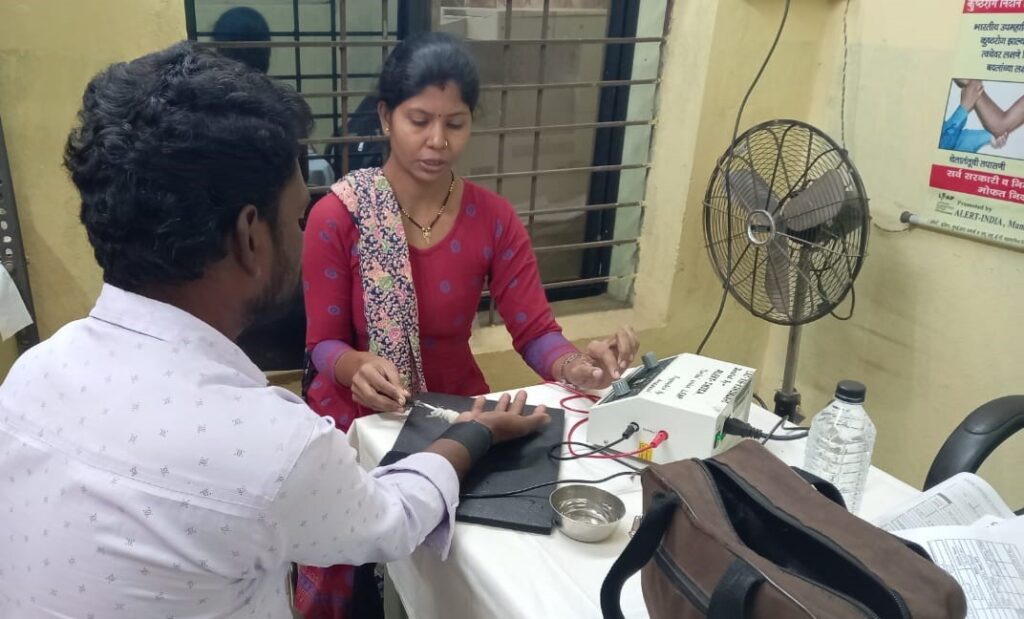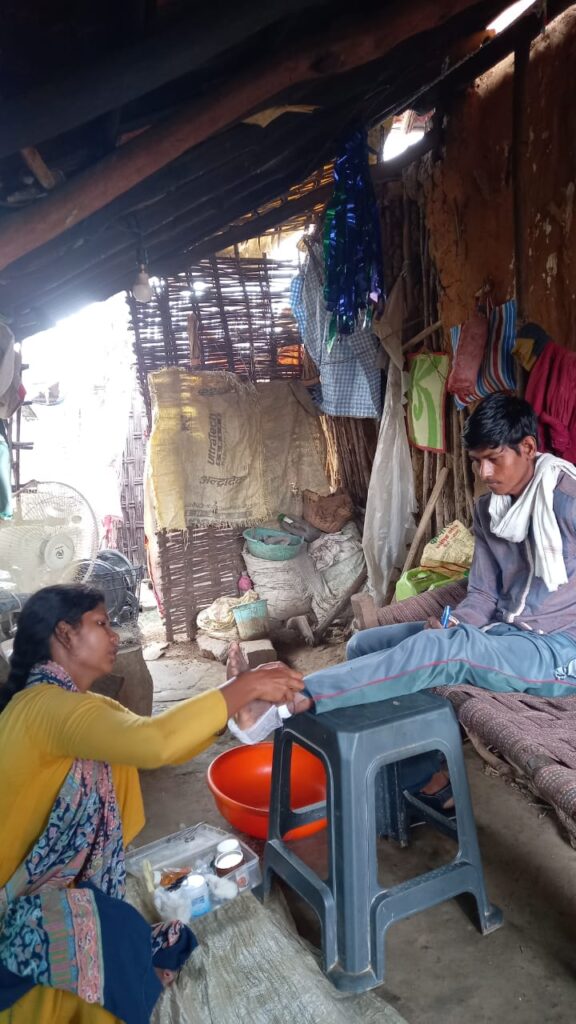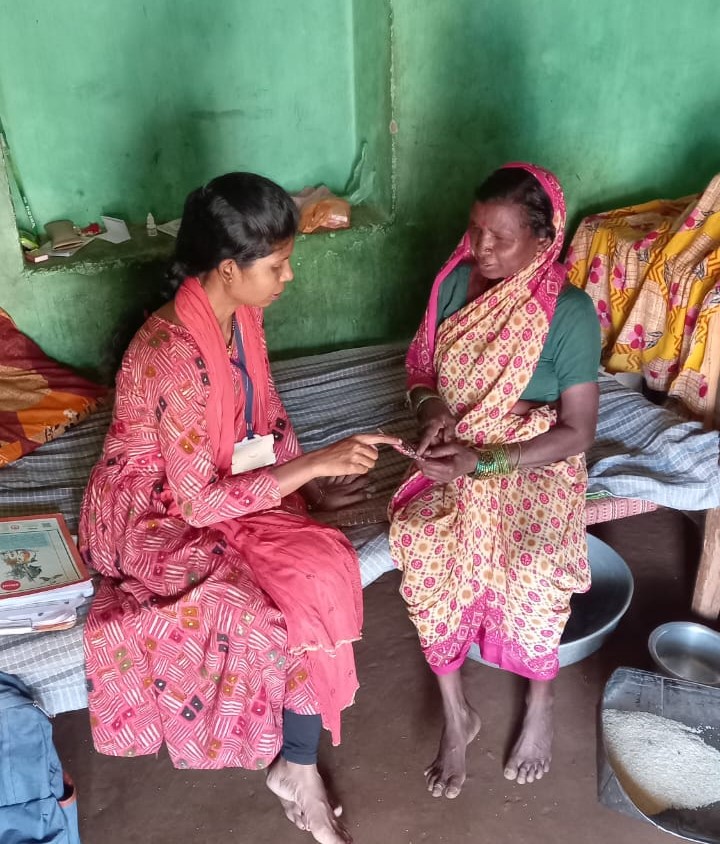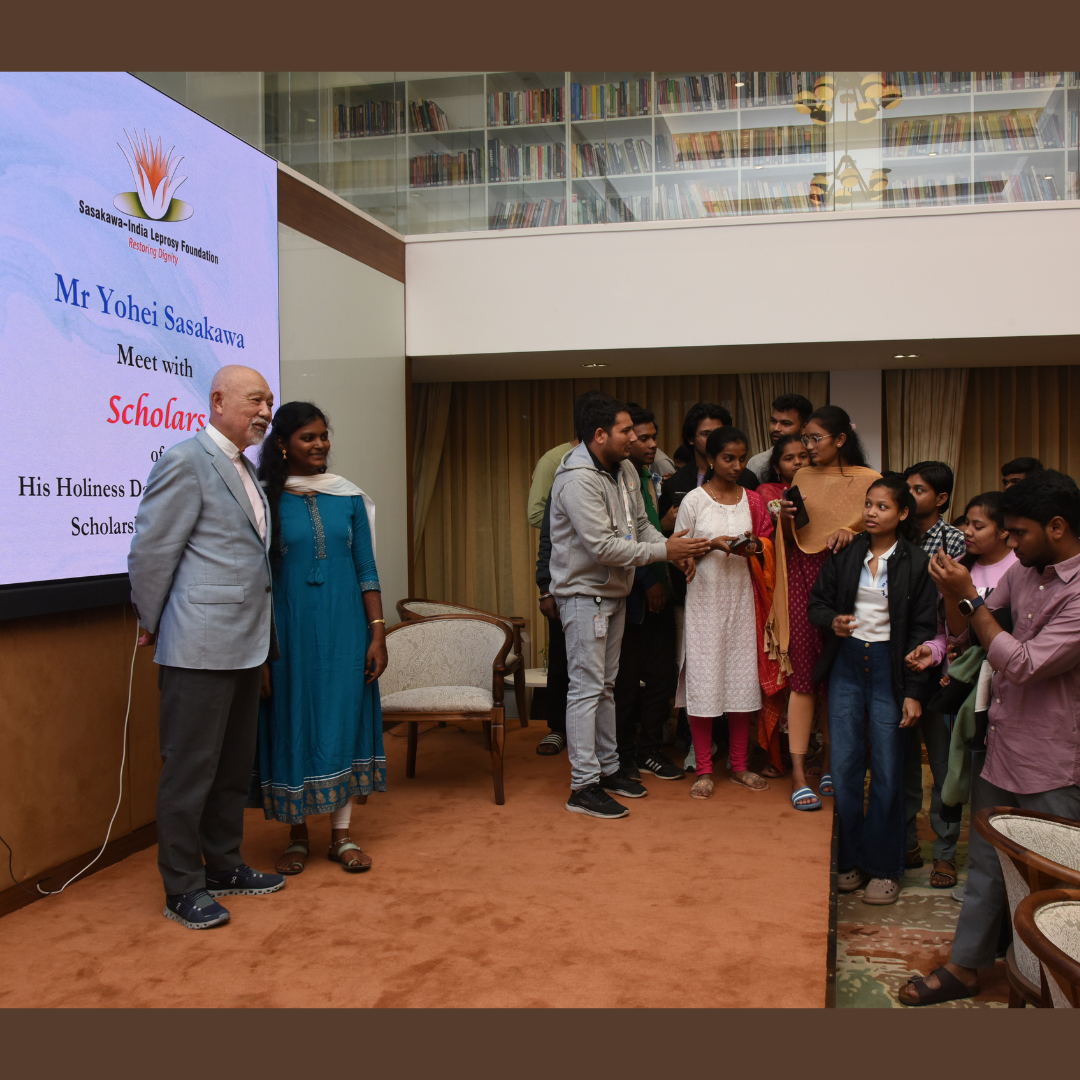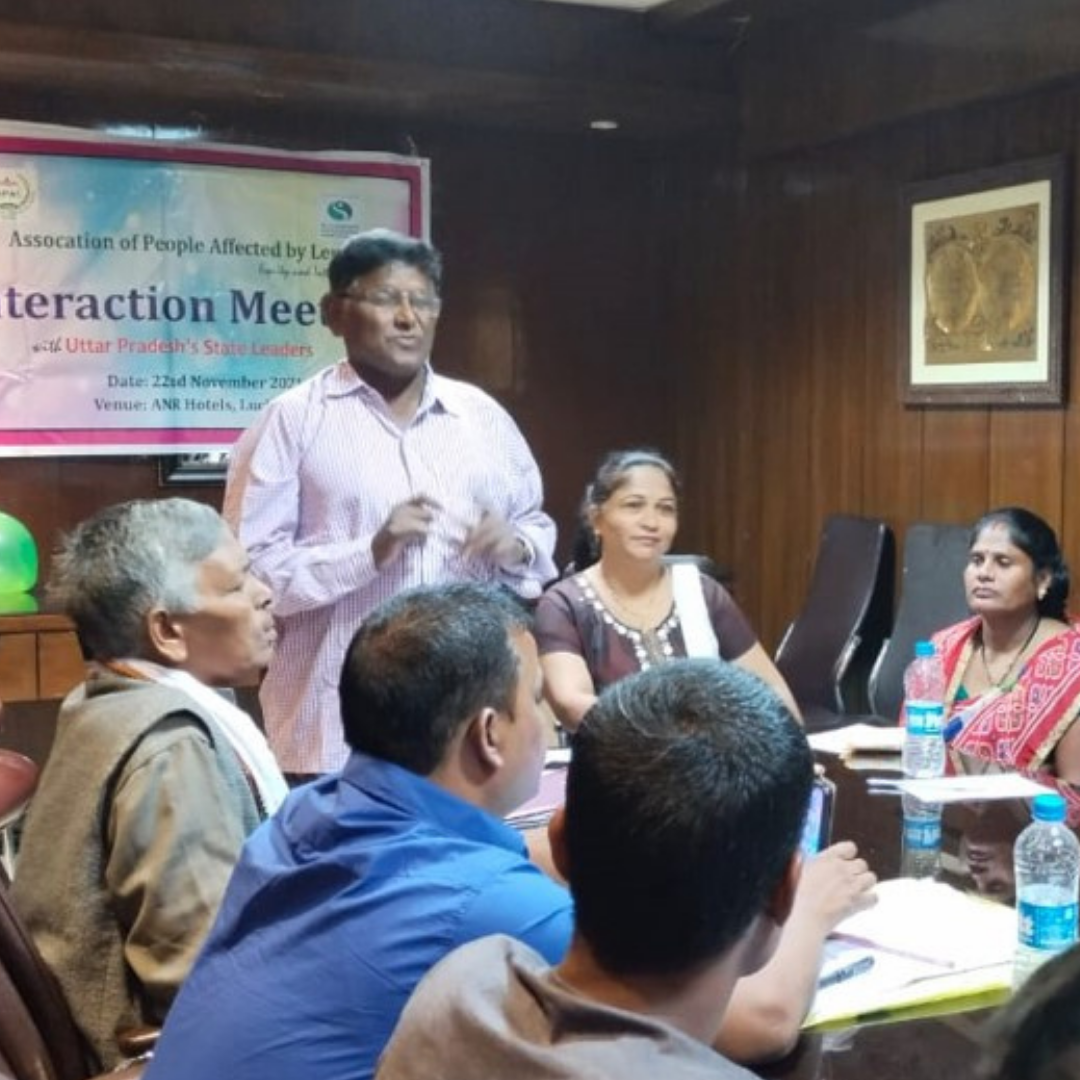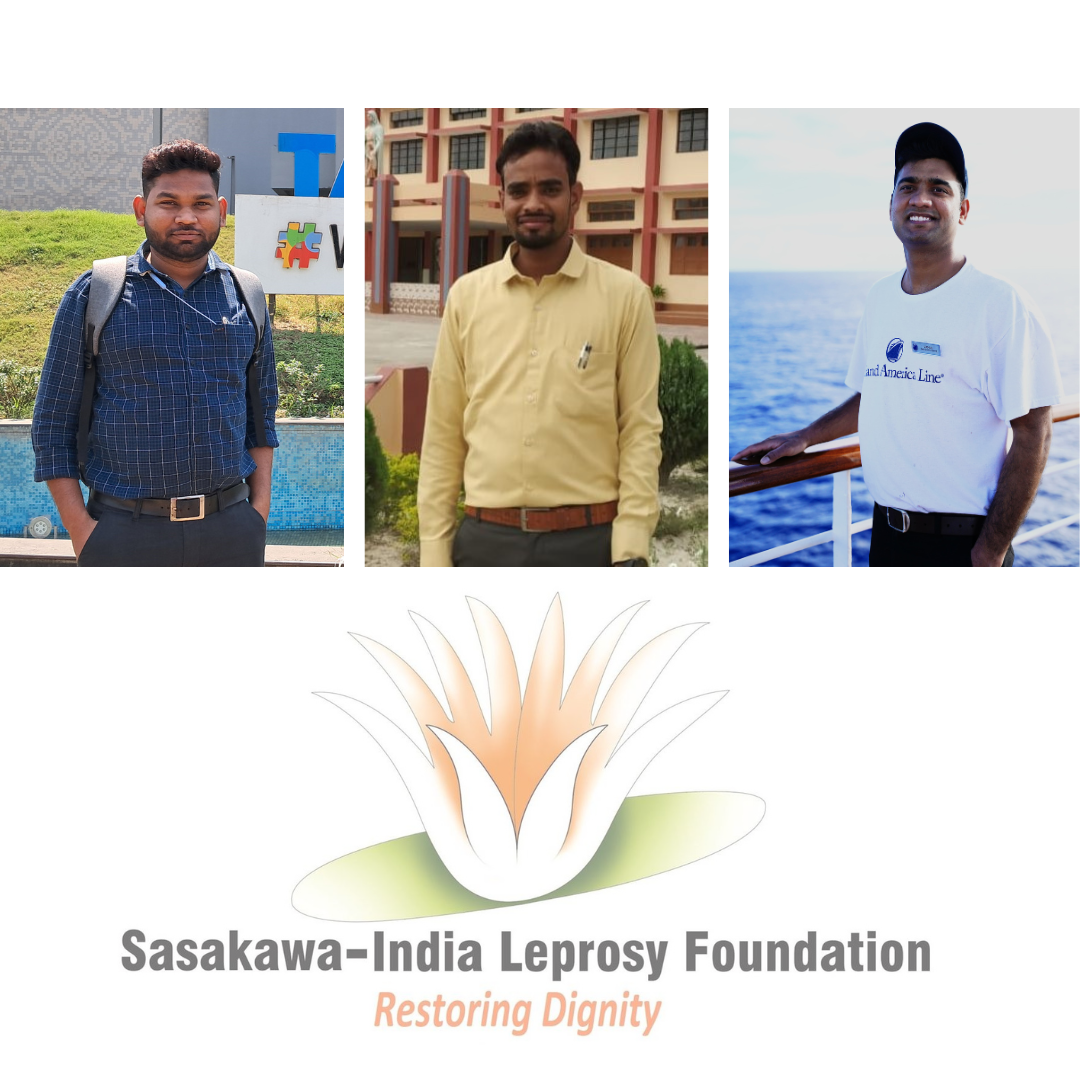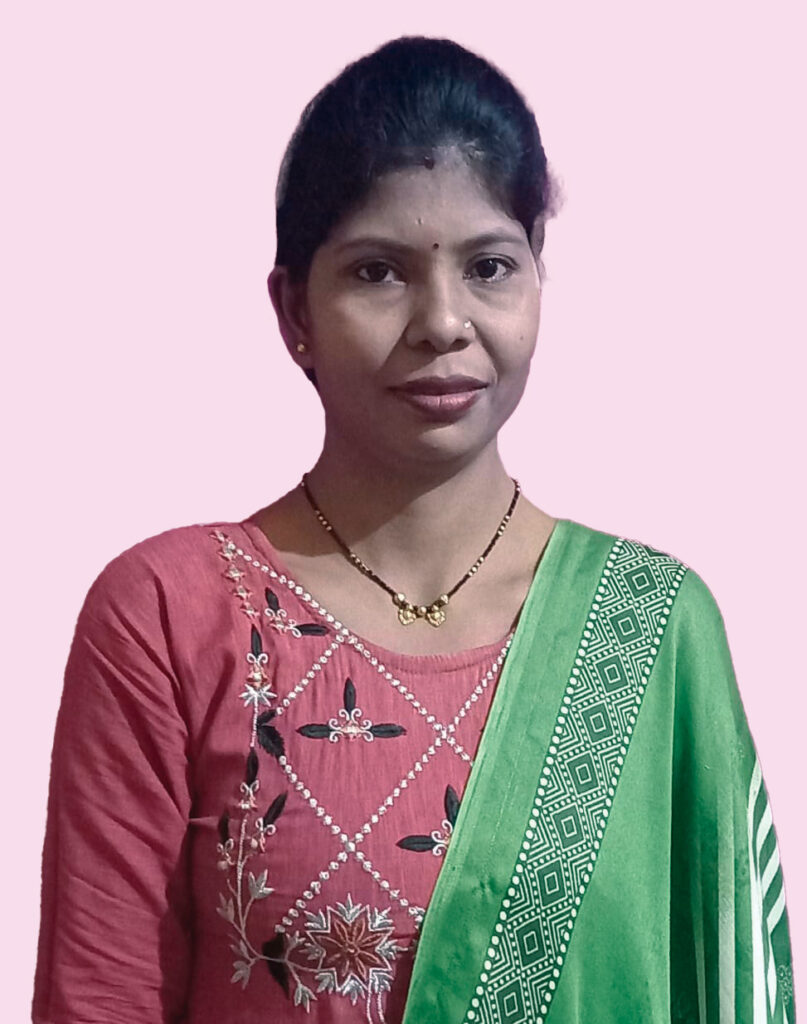
Ashwini Nannaware
Member Leader
Saksham Kushthanteya Swabhimani Sanstha (SKSS)
In Marathi – the official language of the state of Maharashtra, India – “Saksham Kushthanteya Swabhimani Sanstha” means “Pride Organization of Empowered Persons Affected by Leprosy.” Ashwini Nannaware is one of four members of SKSS who lead small teams of field investigators as part of a research and advocacy project.
I am Ashwini Pundalik Nannaware from Mohali Naleshwar village, Sindewahi block, Chandrapur district, Maharashtra state, India. I studied up to pre-degree (12 years of school) in arts, and I have a family of four: my husband, a son, a daughter, and myself.
I was diagnosed with leprosy in 2019 at the Leprosy Referral Centre (LRC) in Sindewahi. I had a numb patch on my hand. At that time, I was working as a community counselor for the Leprosy Elimination Action Program–Human Rights Based Approach (LEAP-HRBA) project organized by the Association for Leprosy Education Rehabilitation and Treatment–India (ALERT-India). My mother had leprosy and a disability due to delay in diagnosis, but it never crossed my mind that I might contract leprosy from contact with her or with those I met through the project. I was fully aware of the cause of leprosy and how it occurs.
In 2019, the year that I was diagnosed, SKSS was in the process of being set up. The concept of having an organization for Kushthanteya[1] living outside of leprosy colonies had emerged during a LEAP-HRBA project implemented by ALERT-India and the Association of Women Awareness and Rural Development (AWARD) in 2016-17. Two years later, on May 24, 2019, Kushthanteya from Gadchiroli and Chandrapur districts co-founded SKSS, and the organization received its official registration on Dec. 5, 2019. I joined immediately as a lifetime member. I had been helping Kushthanteya as a community counselor. From this point forward, I would work alongside them as a peer.
In 2022, SKSS carried out a project with financial support from the Sasakawa Health Foundation (SHF) and technical support from ALERT-India to collect data on the impact of leprosy and COVID-19 on the lives of persons living in tribal/rural communities in Chandrapur and Gadchiroli districts. While collecting the data through interviews, we discovered that Kushthanteya are afraid to talk about their marital and family issues. This discovery led to the development of an additional project for learning about how discrimination affects their experiences of marriage and family relations. The project launched this year, in 2024, again with the support of SHF and ALERT-India. This time, I was one of a few SKSS members selected to be a “leader.”
As a leader, I was involved in the 2024 project from the beginning. I participated in many stages of the process, including project planning, questionnaire preparation, workshops on tool development, trainer and field investigator training, and road map preparation. I felt a positive change in myself from each activity. Although I had participated in such types of activities before, this time I was able to learn more. My growth benefited SKSS, and I noticed that I was benefitting personally as well. I became totally free from fear psychosis.
I was given the responsibility to go to remote tribal parts in districts like Nandurbar and Gadchiroli and train field investigators. I faced many difficulties in following through on this responsibility. For example, in Nandurbar, the Kushthanteya that I needed to train speak 12 dialects and all of them were participating in this type of project for the first time.
I had a little less difficulty in Gadchiroli because I know the dialect and I am familiar with the living conditions of that area. But even with that knowledge, I still had to learn how to create environments that put others at ease. I discovered that I tend to laugh in places where I was not supposed to and that my laughing was sending the wrong message to others. Through this project, I corrected this habit.
Within Gadchiroli, I also had the opportunity to visit Desaiganj (Wadsa) for the first time. Even though it is in the same district as my home village, it is far away, and there were many difficulties in mobility. But I accepted the challenge, and in the end I successfully overcame the difficulties.
The research and advocacy project confirmed that Kushthanteya have many problems. But until one understands and becomes aware of one’s own problems, one cannot plan solutions for them. Kushthanteya need to embrace things like participating in various processes and using new technologies. Once we understand the problems, we must raise our own voices and advocate through organizations.
[1] “Kushthanteya” is the Marathi term for “persons affected by leprosy.” It has been used throughout this article at the author’s request.
